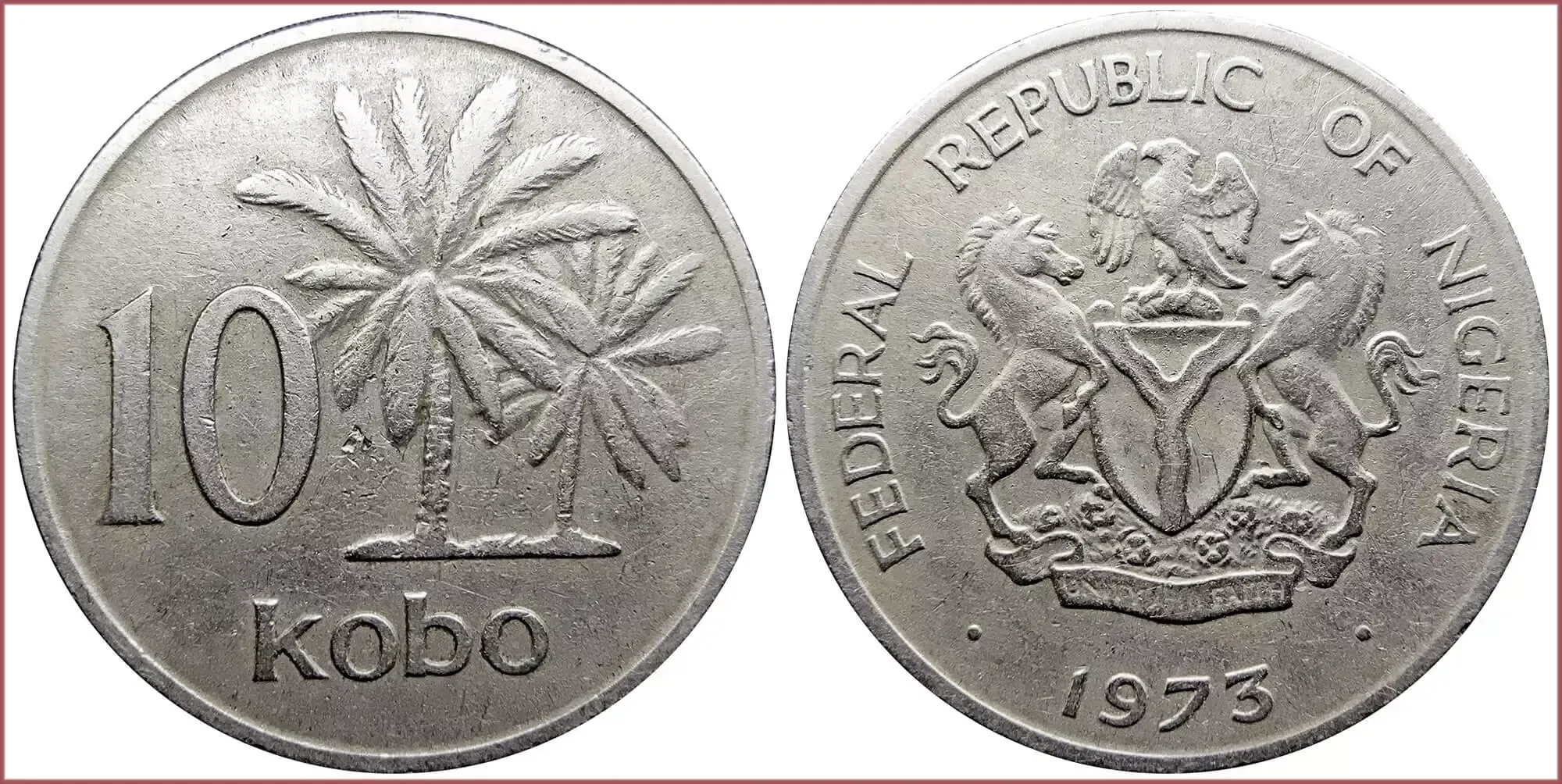KOBO: COIN OF NIGERIA
10 kobo, 1973: Federal Republic of Nigeria
10 KOBO.
Elaeis guineensis (two trees) — species of palm commonly just called oil palm but also sometimes African oil palm or macaw-fat. It is the principal source of palm oil.
The species of palm tree Elaeis guineensis originally grew in West Africa. The southern coast of Nigeria was called the Palm oil coast by the first Europeans who arrived there and traded in the commodity. This area was later renamed the Bight of Biafra.
FEDERAL REPUBLIC OF NIGERIA.
Coat of arms of Nigeria consists of a black shield (represents Nigeria's fertile soil) with a wavy white pall, symbolizing the meeting of the Niger and Benue rivers. Two supporting horses represent dignity while eagle represents strength. Flowers at the base (Costus spectabilis, Nigeria's national flower) stand for the beauty of the nation. Nigeria's national motto before 1979 — "Unity and Faith".
Coin design: Geoffrey Colley.
Mintage: 340.870.000.
- Copper-nickel: 23 mm - 4.08 g
- Reference price: 0.5$
COIN KOBO — WHERE & WHEN (coins catalog: by names & emitents)
- FEDERAL REPUBLIC OF NIGERIA (1973-...): kobo = 1/100 naira
KOBO as coin name.
Kobo is Nigerian unit of currency since 1973, that is, since the replacement of the Nigerian pound with the new national currency, — the naira. Nigeria became the last country in Africa to abandon the British outdated duodecimal monetary system in favor of decimal.
At the time of the introduction of the currency, coins of the following denominations were issued: 1/2 (never minted in the future), 1, 5, 10 and 25 kobo. It is interesting that initially 50 kobo existed exclusively in the form of banknotes. In 1991, metal 50 kobo and 1 naira were added.
All coins contain the image of the coat of arms of Nigeria and the inscription "Federal Republic of Nigeria" (the official name of the state).
Regarding the origin of the name kobo coin, there are several versions. According to one of them, the word "kobo" in local languages was used to refer to small copper coins of the times of the British protectorate — pence.

